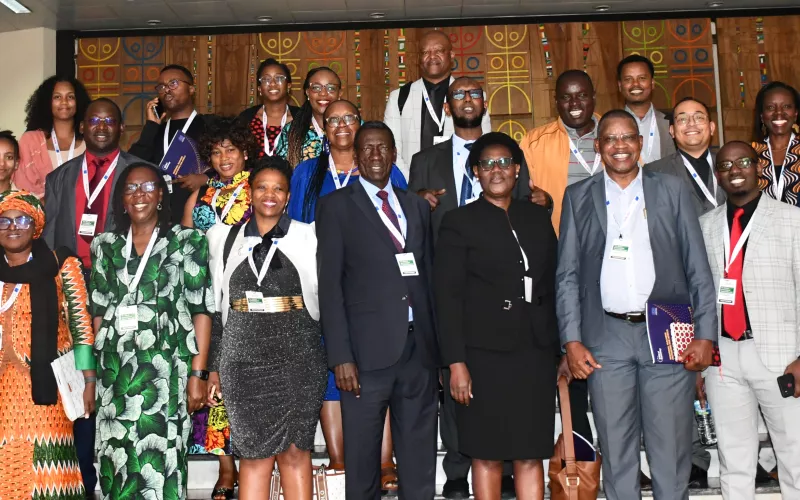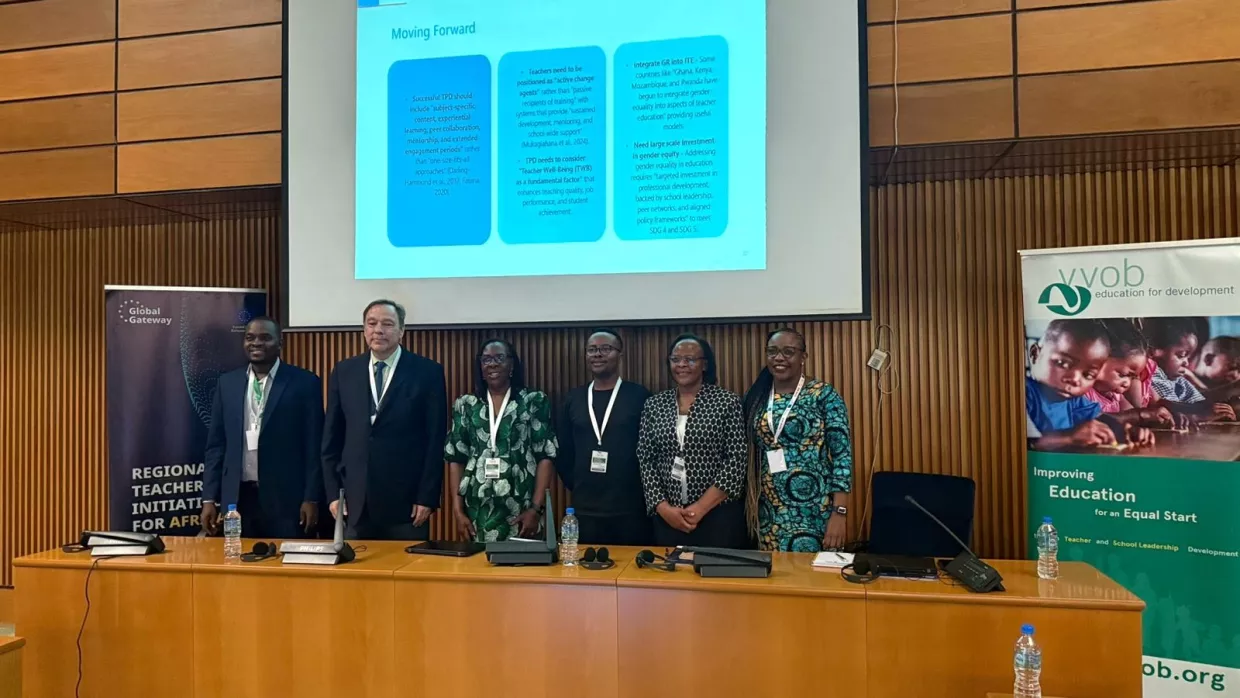Join our newsletter
By subscribing you agree to our Privacy Policy

Nothing for teachers without teachers. This truth lies at the heart of every effort to strengthen education systems across Africa. Teachers are the driving force of learning transformation, and when their professional growth, recognition and wellbeing are prioritised, classrooms become spaces of equity and inclusion.
Studies affirm that teachers’ voices are essential in shaping teacher professional development programmes to be relevant and grounded in the realities of their classrooms. They can’t do it alone. Teachers require ongoing coaching, mentoring, and peer networks to help them shape teaching approaches and classroom practices. This is why VVOB – education for development in partnership with Forum for African Women Educationalists (FAWE) convened a breakout session, “Empowering Educators for Inclusive & Transformative Learning: Teacher Professional Development for Gender-Responsive Pedagogy” on 2 October during the Pan African Conference on Teacher Education (PACTED 2025). The session, running under the EU Global Gateway’s Regional Teachers Initiative for Africa (RTIA) was aimed at sharing insights from a study highlighting effective practices, challenges and opportunities in making teacher education more gender-responsive.
During the session, VVOB, FAWE and partners from UNESCO International Institute for Capacity Building in Africa (UNESCO-IICBA), African Union International Centre for the Education of Girls and Women in Africa (AU/CIEFFA), and South Africa’s Department of Basic Education explored strategies to bring gender-responsive practices into classrooms and the solutions needed to scale Teacher Professional Development for Gender-Responsive Pedagogy in Africa. “Gender-responsive teaching goes beyond giving boys and girls equal turns,” noted Everlyne Nyongesa, Gender Technical Lead at VVOB in Kenya, during the session. “It’s about transforming classroom practices to reflect inclusivity, equity and a deeper understanding of the barriers learners face.”
For VVOB, Gender-Responsive Pedagogy means teachers and school leaders creating learning environments where harmful gender stereotypes are challenged and addressed and where teaching and leadership practices promote gender equality. Gender-Responsive Pedagogy guides teachers and school leaders to support equality among all children, inspires teachers to observe all learners and to address individual differences in needs and skills, thus promoting inclusive environments and overall well-being for learners.
Dr. Martha Muhwezi, Executive Director of FAWE urged that learning environments need to be safe spaces for learners, which could only happen if teachers were equipped with inclusive teaching methods. “We may have good frameworks, but if they don’t align to classroom teaching methodologies, we will not attain Quality Education for All. We must integrate Gender-responsive Pedagogy into teacher training.”
We may have good frameworks, but if they don’t align to classroom teaching methodologies, we will not attain Quality Education for All. We must integrate Gender-Responsive Pedagogy into teacher training.
The joint VVOB/FAWE breakout session explored how gender-responsive pedagogy can be scaled through teacher professional development to help shift classroom practices across Sub-Saharan Africa. Key takeaways included:
Discussions at the conference also stressed that effective school leadership is essential in creating gender-responsive school cultures and equipping teachers with continuous, practice-based professional development.
Speaking during a panel session, “Transforming Teacher Education in Africa: Advancing Innovation, Equity, and Leadership” VVOB in Kenya’s RTIA Regional Coordinator, Louisa Kadzo reminded attendees that school leadership must go beyond examination results to nurturing holistic learners. “To improve teaching and learning, we must invest in leadership that is both instructional and focused on developing a holistic learner. Professional development for school leaders should be long-term, practice-oriented and embedded in daily school life.”
The session was aimed at spotlighting and sharing innovative, context-relevant teaching approaches that raise education quality and improve learning outcomes across the continent.
The Pan African Conference on Teacher Education (PACTED 2025) was held from 1-3 October, in Addis Ababa, Ethiopia. Bringing together education stakeholders from around the world, the event laid a strong emphasis on teacher professionalisation, recognition and inclusive education.
During the event, the African Union and partners launched the Decade of Education 2025-2034, which is Africa’s promise to:
The event also marked the launch of The Africa Teachers Forum, a digital hub to connect teachers across the continent; and the unveiling of key policy reports and strategies, including the 2nd Continental Report on CESA and SDG4, the Common Continental Assessment Framework, Transforming Knowledge for Africa’s Future, Science, Technology and Innovation Strategy for Africa STISA 2034, and Continental Education Strategy for Africa CESA 2026-2025.
PACTED culminated in the awarding of nine exemplary teachers as part of the World Teachers' Day commemoration, reaffirming the importance of teacher recognition and motivation.
As Africa advances its education goals, let’s recommit to stand with teachers by investing in their professional development, embedding gender-responsive pedagogy in policy and practice, and ensuring that no teacher is left behind. You can read more on tangible actions on this in our report here.


By subscribing you agree to our Privacy Policy
Julien Dillensplein 1 bus 2A
1060 Brussels
Belgium